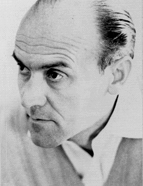

In Kaos (1981), published posthumously, different characters take it in turns to describe the violent, extremist and often absurd atmosphere of the First Republic. It is insinuated, for example, in a parodic style, that republican men, in their hunger for meetings and decision-making, renounce the company of women in order to be with other men. Masonic rituals are described in the same humorous vein. And there is the violence and irrationality of the men who would rather destroy opposing factions than unite around a political project that could dignify the country. As early as Caranguejo (1954), Leitão had developed a narrative style that comprises an exercise in memory, a journey backwards in relation to what has already been experienced (analepsis or flashback). This method, that would persist throughout his later literary work, would also appear in Páginas (1949, 1950, 1956, 1960, 1967 and 1970) and in O Mundo à Minha Procura (1964 and 1968), autobiographies in a fictional style, in which we find memories of the Second World War, of school, of love affairs, of Porto, Lisbon, and Coimbra, of England and many other countries that he had visited for varying reasons. In these volumes of fictionalized autobiography, and in a certain way in Um Adeus aos Deuses (1960) — a book in which he describes what he saw during his stay in Greece — the beauty of his descriptions of youth, of girlfriends, of his grandmother, and of classes with masters such as Agostinho da Silva, relegate to the background a certain bitterness that the writer could never leave behind in relationship to his mother country.
Works by the author : Cartas de D. Pedro V ao Conde de Lavradio. Introdução e estudo de Barcelos, Portucalense Editora, 1946; D. Pedro V – um homem e um rei, Porto, Portucalense Editora, 1950; D. Pedro V e Herculano, Coimbra, Coimbra Editora, 1954; Cartas de D. Pedro V ao Príncipe Alberto. Tradução e estudo. Lisboa, Fundação da Casa de Bragança-Portugália Editora, 1954; Documentos dos Arquivos de Windsor. Apresentação, estudo e notas. Coimbra, Coimbra Editora, 1958; Novos Documentos dos Arquivos de Windsor. Apresentação, estudo e notas. Coimbra, Coimbra Editora, 1958; Cartas de D. Pedro V aos seus contemporâneos. Apresentação, estudo e notas. Lisboa, Livraria Portugal, 1961; Inéditos de D. Pedro V ao Imperador do Brasil. Apresentação, estudo e notas, Sep. da Revista Ocidente, Lisboa, Novembro de 1968; Diário da Viagem a França Del-Rei D. Pedro V (1855). Memórias e Documentos para a História Luso-Francesa – VI, Paris, Fundação Calouste Gulbenkian. Centro Cultural Português, 1970; A Importância do Fundo do Real Erário para a História do Brasil. Subsídios para a História Portuguesa, nº11, Academia Portuguesa da História, Lisboa, 1972.
